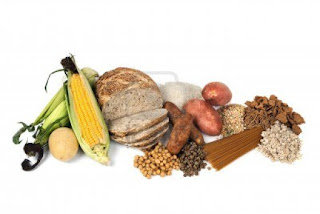by guest blogger Rob Toledo
So you’re completely prepared for your trip. Your bags are packed, passport ready, currency exchange complete… But you also happen to be someone who focuses on healthy eating. This can pose a bit of a problem while abroad, but here are some helpful tips before you hit the road.
Eating healthily while traveling abroad can present the same kind of challenges as eating at a restaurant at home. It’s just hard to know for sure how good a dish is for you when you don’t know how it was prepared. But there’s one big difference: in a foreign country, you might not have the language skills or knowledge of ingredients to be able to ask the questions you need to know, like, “Is this fried?” or, “Are these rice and beans made with meat products?”
Still, eating healthily abroad isn’t entirely out of the question, just as long as you get a little strategic.
Go vegetarian or vegan
Yes, this is probably the most difficult way to eat while traveling, especially since so many cultures view meat as a rare delicacy and a gift for visitors. But it’s very difficult to know where meat came from and how it was prepared. Better to stick to vegetables and whole grains whenever you can and avoid the risk of illness.
Know the most important lingo
Just like at home, the best way to determine whether or not a meal is healthy is to ask a lot of questions. What kind of vegetables does the dish have? Does it use brown or white rice? Look up key terms ahead of time, especially if you’re going to be eating vegetarian in a culture that’s heavily meat-based. In general, it’s best to stick to appetizers, which on a whole tend to be healthier and of smaller portions than main meals.
Get social
In some cultures, “vegetarian” can mean “there’s one carrot on the plate” or “we picked out the meat.” Even “salad” in Britain can mean something different than it does here; most often, a lowly shred of iceberg lettuce.Try reaching out to English-speaking locals on social media sites like Twitter ahead of time to run your phrasing past them. You can also enlist your tour guide or someone who works at your hostel or hotel to write out a more complete message to hand to the waiter.
Prepare your own food
Before you leave, look up staple crops in your destination country and research a few good recipes. This won’t prevent you from experiencing the culture if you seek out local recipes filled with vegetables and whole grains. In fact, browsing through farmer’s markets can give you a truly unique cultural experience. Fruit and vegetables are often available very cheaply and are a great way to keep your fiber intake high. However, if you’re going to be visiting a country with different sanitary habits than our own, go for thicker skinned veggies and fruit to avoid catching any local bugs.
Pack your own supplies
Before you leave home, go shopping for dried fruit, trail mix and energy bars made without hydrogenated oils. While none of these options are ideal as a long term strategy, they make a good tide over option when you’re in a bind. It’s also good to pack your favorite spices as an easy way to take that bland dish filled with random ingredients up to the next level.
Travel to healthy eating hubs
If you’re really set on healthy eating while abroad, travel to places known for their healthy cuisine. India and much of Southeast Asia can be a great option for vegetarians just as long as you stay away from heavy creams. And Greece is heaven for people who love their vegetables.
No matter where you go, healthy eating is possible, though do forgive yourself if you slip up once in awhile. After all, there’s no harm in embracing that local delicacy once in awhile, just as long as you stay healthy the rest of the time. When authentic local cuisine combines with healthy eating, there’s nothing quite like it.
Rob Toledo loves world travel. His ultimate goal is to have visited 100 countries in his lifetime. He recommends doing lots of research about a country before visiting, using a currency converter to avoid scams, and making sure to always have something a little healthier packed away in your bag to ensure the best healthy eating while abroad.
photo credit:
Spieke (Wikimedia)
If you like what you see here then you'll LOVE our daily Facebook and Twitter posts! Also, don't forget to sign up for Our Free Online Mailing List to get all the latest updates from the Plant-Based Pharmacist!
Check out Dustin Rudolph's book The Empty Medicine Cabinet to start your journey towards better health. This step-by-step guide leads you through many of today's common chronic diseases (heart disease, obesity, diabetes, cancer, and more), giving you the facts on foods versus medications in treating these medical conditions. The book also contains an easy-to-follow guide on how to adopt a whole foods, plant-based diet as a part of an overall lifestyle change, producing the best possible health outcomes for you and your family. Hurry and get your copy today!
We'd love for you to join us in spreading the good word about plant-based nutrition and lifestyle medicine by telling your family and friends about our website at www.PlantBasedPharmacist.com.
Share and rate this post below or tell us what you think by posting a comment. Thank you again for stopping by and until next time... be happy, be healthy, and live the life you've always dreamed of!
 Energy is needed for normal body functions including maintaining body temperature, breathing, digestion, thinking, exercising, and managing the heart rate. That energy comes from protein, fat, and carbohydrates. Carbohydrates are broken down into glucose which the body uses as its primary and most efficient source of energy. Carbohydrates are the only energy source the brain, nerves, and developing red cells can use for energy. Protein and fat are used as sources of energy only when carbohydrates are depleted.
Energy is needed for normal body functions including maintaining body temperature, breathing, digestion, thinking, exercising, and managing the heart rate. That energy comes from protein, fat, and carbohydrates. Carbohydrates are broken down into glucose which the body uses as its primary and most efficient source of energy. Carbohydrates are the only energy source the brain, nerves, and developing red cells can use for energy. Protein and fat are used as sources of energy only when carbohydrates are depleted.
 Energy is needed for normal body functions including maintaining body temperature, breathing, digestion, thinking, exercising, and managing the heart rate. That energy comes from protein, fat, and carbohydrates. Carbohydrates are broken down into glucose which the body uses as its primary and most efficient source of energy. Carbohydrates are the only energy source the brain, nerves, and developing red cells can use for energy. Protein and fat are used as sources of energy only when carbohydrates are depleted.
Energy is needed for normal body functions including maintaining body temperature, breathing, digestion, thinking, exercising, and managing the heart rate. That energy comes from protein, fat, and carbohydrates. Carbohydrates are broken down into glucose which the body uses as its primary and most efficient source of energy. Carbohydrates are the only energy source the brain, nerves, and developing red cells can use for energy. Protein and fat are used as sources of energy only when carbohydrates are depleted.





























.jpg)
























